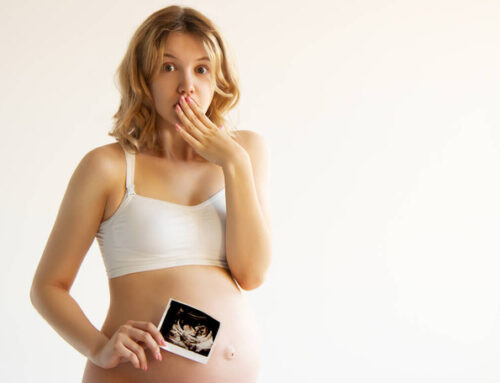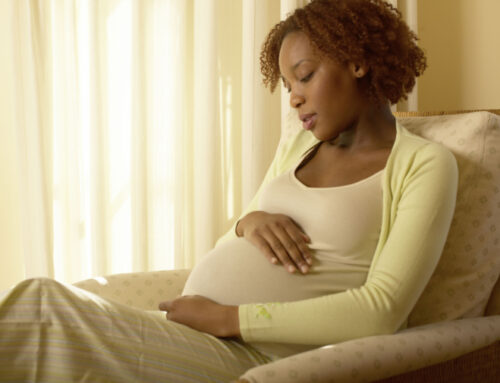Infertility Tips & Tricks For Women and Men

Infertility is defined as not being able to conceive after one year or longer of unprotected intercourse. Approximately 1 in 8 couples are affected by infertility in the U.S. Men are sometimes overlooked in conversations about infertility, but men do still face infertility. 9% of men and 11% of women of reproductive age have experienced fertility issues. The most common cause of infertility in women is failure to ovulate, whereas unhealthy sperm production is the predominant cause of male infertility.
Another misconception about infertility is that it means it is nearly impossible to conceive, when in reality, 50% of infertile couples who do seek help eventually do conceive. If you are someone struggling with infertility, here are some infertility tips and tricks for women and men that may help bring you closer to a healthy pregnancy.
1. Avoid Smoking Cigarettes or Marijuana
Smoking not only decreases the total number of eggs you have, it also causes an increase in the abnormalities inside the eggs. There is little research about what the effects are of longterm marijuana use on fertility, but smoking marijuana while trying to get pregnant can impair ovulation.
2. Limit Exposure to Plastics
There are harmful chemicals inside most plastics which have similar effects on infertility. When you put plasticware in the microwave or eat hot food out of them, the heat accelerates the release of harmful chemicals such as BPA and phthalates which have been linked to menstruation disturbances, ovulation abnormalities, and a higher risk of endometriosis.
3. Protect yourself from STIs
It is important to protect yourself from sexually transmitted diseases or infections for a myriad of reasons, including infertility. Chlamydia in particular is a viscous actor against fertility. It directly damages sperm, and can permanently damage the fallopian tubes, leading you to need IVF in the future. If you are someone who has had Chlamydia in the past, you should consider getting a test to see if your tubes are damaged, since the infection is asymptomatic and can lay dormant for years untreated.
4. Limit Consumption of Processed Foods and Meats
You do not need to completely exclude red or processed meat from your diet but it is generally a good idea to limit consuming red meat to at least once a week. Processed foods and other packaged goods are normally packed in plastics which, as was mentioned before, omit harmful chemicals when heated up. There are also a lot of refined carbohydrates in processed foods that can cause insulin resistance which can affect your body’s response to ovulation.
5. WOMEN: Pay Attention to Your Period
If you are a woman or female-bodied individual who is trying to pregnant but you are, or were, using hormonal contraception, you must stop using any of these methods for at least 3-6 months until your period returns and is regular. You should be able to track roughly when your period is due. Most people are most fertile from the 10th to 14th days of their cycle, so that is the best window of time to try to conceive.
However, if you notice that over time your cycle interval is shortening, you must notify your OB/GYN and request an AMH blood test because this could be a sign of low ovarian reserve, meaning you have fewer eggs than normal for your age. One of the only signs of low ovarian reserve is the shortening of your cycle interval. If you do discover that your egg count is low you can take special precautions for fertility like freezing your eggs, or treating any medical problems that may be inhibiting you.
6. MEN: Avoid Hot Tubs, Saunas, and Tight Pants
Men and male-bodied individuals are unique in that too much heat in the genital area actually damages their sperm motility and viability. This includes body heat. So if you are a man who is battling infertility it is helpful to avoid tight-fitting underwear or jeans in favor of looser pants or boxers.
7. Do not ignore your age
Age is the number 1 predictor of success of pregnancy. A woman can absolutely get pregnant in her late 30s or 40s but at 40 the chance of pregnancy per month is 5% whereas at 30 it is 20%. Male fertility also generally starts to reduce around the ages of 40 to 45 years when sperm quality decreases.
There are many valid reasons a person may use contraception or wish to not be pregnant. You may not have the resources to adequately parent a child. You may simply not desire to have children at all. It is perfectly okay to be childfree. Many childfree women live happy lives and into old age without any regrets. However, if you are someone that believes that you could change your mind in the future when your circumstances are different, you may want to consider cryopreservation, freezing your eggs or sperm so that the option will always be there for you.
8. Try Herbal Teas or Supplements
Beyond these infertility tricks and tips, it is advised that you speak with your doctor about receiving infertility medication. Along with that, you may find it helpful to go down the holistic route. There are lots of nutrients that our body needs in order to optimize our fertility. Vitamins and minerals, like Folic acid or Zinc, respectively, are among these helpful nutrients. Besides taking prescribed fertility medications, you may want to try herbal teas or supplements, designed by registered herbalists, and with the right nutrients, if your doctor recommends them.
Some herbal teas or supplements can overexpose the body to too much of one or more nutrients so it is important to confirm with your doctor that whatever you are taking is compatible with your fertility medication. Herbs like Chaste berry (Vitex) and Red clover are shown to be beneficial for female fertility. Herbs like Ashwagandha are shown to be beneficial for male infertility. Zinc supplements are also particularly advantageous for improving male fertility.
Wisdom of the Womb has herbal teas for women, as well as for men, which contain vitamins and nutrients specifically designed around infertility. They have products designed to help with infertility caused by specific conditions as well, such as PCOS, fallopian tube blockage, or endometriosis.

Remedy and Restore sells all sorts of herbal teas designed to help balance hormones, support the menstrual cycle, libido, and more. They also sell products to help reduce inflammation and soothe menstrual cramps.

And here is a list of vitamins that help improve fertility: Fertility Vitamins to Take When Trying to Conceive
9. Adoption
Our hope is that these infertility tips and tricks help you in your journey to a successful pregnancy. If you have not found success in your struggle with infertility, or you discover that you are sterile, you may consider building your family through adoption. But before you decide whether adoption is right for you, it is important that you take the time to grieve. Many of us spend our lives picturing our families with a biological connection. It is okay to grieve the loss of that path. When you are ready, if you have decided to go down a new path towards adoption, you may discover that what really makes a family is a foundation of love and connection.
Want to learn more about male infertility? Read our blog solely dedicated to tips and tricks for male infertility: Men Face Infertility Too
If you are a woman with PCOS you may want to know what this means for your pregnancy when you finally do conceive. Read our blog here to learn more: PCOS and Pregnancy
Works Cited
Crawford, Natalie. “6 Health Tips to Improve Your Fertility and Help You Get Pregnant Now or Later.” Natalie Crawford MD, Natalie Crawford MD, 28 Sept. 2022, www.nataliecrawfordmd.com/blog-1/6-health-tips-to-improve-your-fertility-and-help-you-get-pregnant-now-or-later?rq=Fertility+health.
Department of Health. “Age and Fertility.” Better Health Channel Victoria, Australia, Department of Health & Human Services, 3 Mar. 2014, www.betterhealth.vic.gov.au/health/conditionsandtreatments/age-and-fertility#.
Fertility Answers. “Infertility Stats You Should Know.” Fertility Answers, 13 June 2023, www.fertilityanswers.com/13-stats-know-infertility/#:~:text=Fertility%20experts%20agree%20that%2C%20on,cases%20the%20cause%20is%20unknown.
Hoang-Thi, Ai-Phuong, et al. “The Impact of High Ambient Temperature on Human Sperm Parameters: A Meta-Analysis.” Iranian Journal of Public Health, U.S. National Library of Medicine, Apr. 2022, www.ncbi.nlm.nih.gov/pmc/articles/PMC9288403/#:~:text=Heat%20stress%20damages%20human%20sperm,decrease%20in%20spermatogenesis%20(15).





